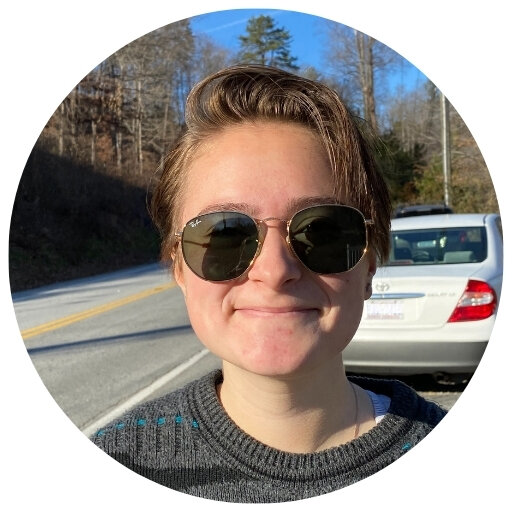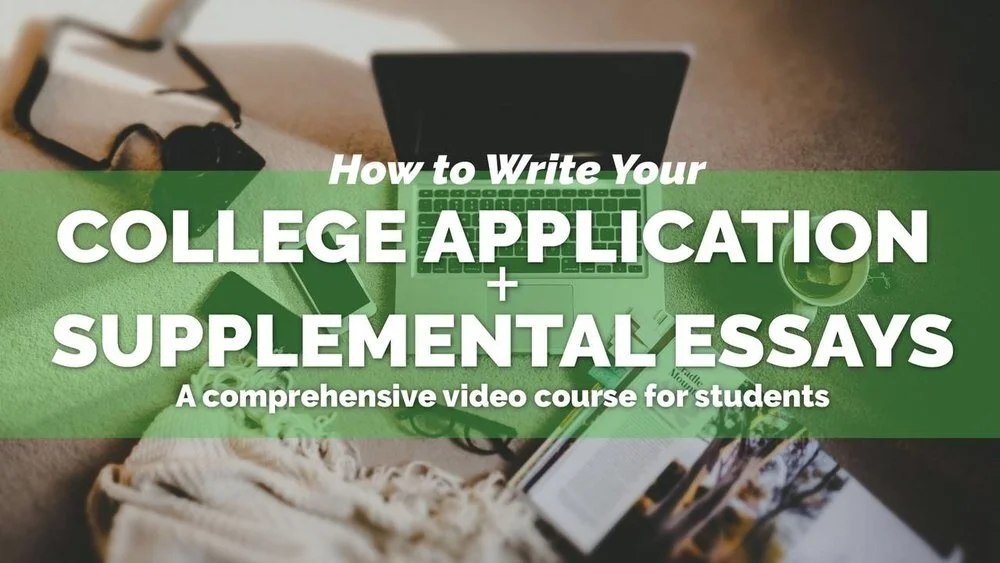Want to get a better sense of what CU Boulder is looking for? You’ll find an extensive, by-the-numbers look at its offerings, from enrollment and tuition statistics to student life and financial aid information, on its Common Data Set. For deep insights into how this university envisions student success (and how it wants to grow and evolve), read its strategic priorities. Reading through this will give you a strong idea of CU Boulder’s values.
What is the University of Colorado Boulder supplemental essay prompt?
Prompt #1
What do you hope to study, and why, at CU Boulder? Or if you don't know quite yet, think about your studies so far, extracurricular/after-school activities, jobs, volunteering, future goals, or anything else that has shaped your interests. (250 words)
How to Write the Supplemental Essay for University of Colorado Boulder
How to write CU Boulder Supplemental Essay Prompt #1
What do you hope to study, and why, at CU Boulder? Or if you don't know quite yet, think about your studies so far, extracurricular/after-school activities, jobs, volunteering, future goals, or anything else that has shaped your interests. (250 words)
Think of this as two essays in one: a “Why Major” + a “Why us?” And while you can lean (pretty heavily if you want) into the “Why Major” part of it, since that’s the primary question in the prompt, it can be nice to show how you and Boulder will pair together well. So maybe consider devoting about half to two thirds of your word count to why you’ve chosen your major, then the rest on how you want to explore that field at CU Boulder. Note, though, that at 250 words max, you’ll have to be judicious in deciding which examples and details to explore.
To get you started, here’s a complete guide to the “Why Major'' essay. And here’s the full guide on how to write the “Why us?” essay. When you read through that one, pay close attention to the “Why Cornell” and “Why Penn” examples (our favorites).
And if the second part of the prompt (“if you don’t know quite yet”) really applies to you, then pay careful attention to the section of the Why Major guide above that talks through how to write a “Why Major” essay when you don’t know what you want to major in (yes, it is definitely still possible).
Action Items:
Read the “Why Major” guide. What mini-movie moments do you envision exploring? Note the prompt’s interest in exploring “what inspired your interests in this area,” specifically probing for “prior/current coursework, extracurricular activities, work/volunteer experiences, future goals, or anything else”—a long list that should give you lots of ideas on where to mine for content. Pro tip: Start with your Common App Activities List!
Reflect on what you want out of your college experience. Collect those insights using this chart. Identifying specific or niche interests and needs will help you find equally specific resources at CU Boulder and make your “we’re a perfect match” case (see more on this in the “complete guide” link above) more compelling.
Spend at least an hour researching 10+ reasons why CU Boulder might be a great fit for you, mapping them out in the third column of the chart.
Remember: The best “Why us?” pieces don’t celebrate how “x” school is the GREATEST SCHOOL OF ALL TIME. They’re more an explanation of why you and the school are the perfect match. Make sure to connect each of your Tech examples to your goals and interests.
Create an outline that combines your mini-movie moments for the “Why Major” top, then outline the “Why us?” portion based on either Approach One, Approach Two (recommended), or Approach 3 (as explained in our “Why us?” guide).
This is a new prompt for CU Boulder, so we don’t have any examples specific to this school. But this essay, written for UT, offers a nice template for how to mash the “Why Major” with rich “Why us?” details.
Here’s a nice example essay, to illustrate how you can approach this prompt.
Example 1:
When I first learned about abstract algebra from brilliant.org, I was fascinated. I have been interested in math for as long as I can remember, but this experience shaped my interest in math as a career path. When I encountered Lagrange’s theorem, I was amazed by its generality and applications to number theory, and I really wanted to learn about the proof of this result. This inspired me to read more advanced texts, leading me to books such as Rotman’s Advanced Modern Algebra and Neukrich’s Algebraic Number Theory. I continued exploring these concepts at the Awesome Math Summer Program and The Ross Program. I developed an interest in cryptography because it provided me a way to use my abstract knowledge for something concrete and valuable. Cryptography inspired me to continue learning math because of the use of algebraic geometry and finite fields.
At Boulder, I hope to take courses such as Algebraic Geometry and Theory of Rings to strengthen and expand my interests. I am also interested in finding a community of like-minded scholars at Boulder’s Math club QED. I hope to continue my interests in cryptography with MATH 4440 and use my knowledge in algebraic geometry to learn more about elliptic cryptography. These courses will allow me to gain the necessary knowledge to help me plan my career goals and possibly work in the field of cryptography, where I can help advance encryption methods.
— — —
Tips + Analysis:
Dive in. With 250 words, you don’t have a lot of space to meander. So while you can use a hook, we’d recommend keeping it pretty brief—probably a sentence, rather than a paragraph. And it’s fine to essentially not have one, or to use specific details about your journey as a hook: The essay above dives straight into his origin story, opening with a moment that set him on the course to becoming a mathematics superhero.
Show how you leveled up. In whatever way possible, it can be really nice in a “Why Major” essay to show how you have continued to grow and develop in your pursuit of a subject or field. One way we’ve referred to this is “showing curiosity with legs”—as in, showing curiosity is great, but it’s stronger to show how you then pursued that curiosity through really specific actions and details. Above, pointing out that he read “books such as Rotman’s Advanced Modern Algebra and Neukrich’s Algebraic Number Theory” then continued with various math programs nicely illustrates the depths of his exploration. And note that there can be other ways you show this kind of leveling up and pursuit of your interests—what actions can you share with a reader that can show how you have expanded your thinking and understanding?
Show how Boulder offers your next steps + how you’ll partner. The student above chose to make this a combo Why Major and Why Us (with the word count balance tilted almost two-thirds to the Why Major side). Notice that the second paragraph points to really specific aspects of what CU Boulder offers that will allow the student to continue leveling up—specific courses and communities that connect back to his primary interests, and how he and the school can partner together on his path forward. He has clearly taken some time to think about why he and the school belong together.
And here’s an essay, written for a very similar prompt for UT, that offers a nice template for how to mash the “Why Major” with rich “Why us?” details.
Example 2:
Leading E-Learning at Clear Careers, a startup helping students explore, experience, and expand their engagement in the professional world, and supplementing my schedule during quarantine with IBM's "AI For Everyone" and Harvard's CS50 led me to wonder what exactly is beneath the surface of a computer science degree and is it for me?
While it was intriguing to learn each emoji we tap and send so effortlessly is made up of patterns like this: 11111011000000010, I am fascinated and humbled by the human applications offered by AI. After further investigating AI, Cloud Computing, and the emerging field of Computational Sustainability, I feel driven to participate in the conversation around the responsible use of technology. With the knowledge gained from pursuing a CS concentration in Artificial Intelligence, Data Mining, and Machine Learning (ML), I hope to contribute to the United Nations' Sustainable Development Goal #4 “to ensure inclusive and equitable education for all” because education is empowering.
In CS50, Professor David Malan teaches that there is a right way, a wrong way, and a more efficient way to code. I believe a cloud-based school employing AI would enable students to discover unknown fields of study and classes they enjoy, increasing retention rates and making education equitable. What if students worldwide could choose Urban Economic Development instead of simply History?
Home to the world's largest academic supercomputer and the National Science Foundation's AI Institute focused on ML, at UT's Machine Learning Laboratory, I would be proud to work alongside other Longhorns to innovate a high quality, globally accessible educational platform.
— — —
Tips + Analysis:
Click deep when doing your school-specific research: This writer clearly explored the UT website, finding specific examples of classes, programs, and learning approaches that could help her realize her vision to “participate in the conversation around the responsible use of technology.” She not only envisions herself in UT’s programs and classes, she shares how they’d help her learn and grow—for example, by allowing her to contribute to the UN’s Sustainable Development Goal #4 (bonus points for specificity) and imagine a “cloud-based school” with AI technologies helping students “discover unknown fields of study and classes they enjoy.” Notice too how she dedicates more than half (144) of her 258 words on these UT specifics and still is able to clearly communicate her inspiration behind her interest in CS, and more specifically, AI. Try to incorporate 5-7 Why CU Boulder specifics in your essay, ideally 3-5 of which connect back to experiences you’ve had or skills you’ve built over time.
Showcase your values: Think about your college application as a whole, and your essays in particular, as an opportunity to convey not just your interests and goals but the core values that shape them. Why? Because it helps admission officials understand what motivates you, or in short, why you care. Don’t know what your values are? Take 5 minutes to do this Values Exercise, and weave your top 5-7 into your essay in a tangible but not overt way. In other words,notice how this student conveys a number of values—intellectual curiosity (wondering what’s under the surface of a CS degree), meaningful work (leading E-Learning at Clear Careers/wanting to contribute to that UN Sustainable Development Goal), hunger (supplementing her schedule during the pandemic with the IBM and Harvard courses), to name a few of the many sprinkled into this essay—without actually mentioning those values by name. This is where you’ll show rather than tell. Speaking of which ...
Use details to breathe life into your examples: You may have heard the advice, “Show, don’t tell.” We’re more in the “Show, don’t just tell” camp. For example, it’s perfectly fine to say you’re interested in a specific field—or as this student did in sharing that she’s “fascinated and humbled by the human applications offered by AI.” But she doesn’t stop there. She goes on to share why she’s captivated by AI, and what she hopes to do with knowledge in the field, like this: “After further investigating AI, Cloud Computing, and the emerging field of Computational Sustainability, I feel driven to participate in the conversation around the responsible use of technology. With the knowledge gained from pursuing a CS concentration in Artificial Intelligence, Data Mining, and Machine Learning (ML), I hope to contribute to the United Nations' Sustainable Development Goal #4 “to ensure inclusive and equitable education for all” because education is empowering.”
Special thanks to Luci for contributing to this post.
Luci is an audiophile and storyteller with a love of all things radio and writing. In the wild, you might catch her struggling through a NY Times crossword puzzle, snuggling her abnormally fluffy dog Oreo, or saying her favorite expression “cool beans.” Crosswords, cute dogs, cool beans. What more could you ask for?
Top values: Interpersonal connections | humor | openness to new experience
TRY OUT THE COLLEGE APPLICATION + SUPPLEMENTAL ESSAYS COURSE
Create amazing supplemental essays for the most selective schools, polish your activities list, and complete everything else with ease and joy. Learn more here.










